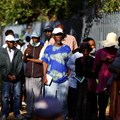There are not many lists where you will find South African right on top. However, when it comes to our outrageously high youth unemployment rate we are, sadly, right up there with some of the worst figures in the world.
Quarterly employment statistics released by Stats SA on 28 March 2023 tell us nothing more than what we already know. A total of 94,000 more South Africans were not in full time employment between December 2021 and December 2022, and a further 85,000 not in part time work.
Worse still, results from the Quarterly Labour Force Survey (QLFS), 4th Quarter 2022 report shows that of the over 10 million young people aged 15-24 years in South Africa, only 2,5 million were in the labour force. The largest share (7,7 million or 75,1 %) of this group of young people are those that are inactive in the workspace. The main reason for this inactivity, according to the survey is discouragement, i.e., they have lost hope of finding a job that suits their skills or in the area they reside.
Promit Mukherjee 28 Feb 2023 This worrying crisis is likely to get much worse before getting any better. It’s a terrifying thought given the severe consequences of high unemployment rates have for our economy, social stability, and future standing in the world.
Education and skills training is always the answer
Investing in education is the simple solution to improving these figures. Education is the foundation for economic growth and social development, and it is the most effective tool for breaking the cycle of poverty and unemployment. While the Department of Education has made commendable strides over the years in improving access to education, the system is still plagued by numerous challenges like a lack of basic resources, an acute shortage of qualified teachers and inadequate infrastructure. Added to this, is ongoing concerns about corruption and mismanagement of funds.
Like with Eskom, while the government fumbles its way through the challenges, South Africa’s educational non-profit sector has been stepping up to the plate, working against extreme odds to fill in the gaps and ensure no child is left behind. Organisations like the one I work for, the Kay Mason Foundation, which relies purely on donor funding, focuses on providing scholarship opportunities to low-income youth, and enhancing the skillset of high school learners from Grade 8 to 12.
While I wholeheartedly believe in the importance of early childhood development education, time and time again, I see in the work that we do, just how much guidance and nurturing is also required during the late teen years, in helping to mold tomorrow’s workers.
It doesn't take much for the wheels to come off completely and throw a child off track during this very vulnerable time in their lives. The work of educational NGOs is instrumental in providing this age group with both academic and psychosocial support on their schooling journey, particularly for those learners who come from disadvantaged backgrounds.
But help is needed. The hefty burden of solving South Africa’s high youth unemployment should not be saddled with education NGOs alone. Over the years, our biggest advocate and the strongest support has been not from the government but from the private sector. They understand that for us to continue making a dent in our unemployment rate, we need to ensure our school leavers have the right skills and knowledge to succeed in today's rapidly changing economy to meet the current skills shortages and challenges head on.
We can’t let donor fatigue stop us now
We know that the only way educational NGOs can continue keeping learners connected to learning and achieve the impossible is with the private sector continuing to champion our course. However, we also know that a challenging post-pandemic economy is leading to a rise in NGO donor fatigue, which can threaten, if not end, all progress.
As an industry, we are fully cognizant that today’s donors are hard pressed for cash – from big business right down to low-income households – everyone is feeling the financial pinch thanks to rising inflation, and an ongoing war in Europe that is causing an escalating cost of living squeeze.
In the world of business, this means dwindling budgets and difficult decisions and sensitive conversations about who to continue supporting and who to cut loose, but while resources might be shrinking, the needs and pressing demands of our country remain the same.
We can see that great things happen when the private sector works hand in hand with NGOs to invest in our country’s future and quality education of our youth. Aside from supporting a worthy cause, this is the answer to so many of our country’s problems (yes, even the loadshedding saga).
In addition to bringing hope and realising the dreams of millions of South African youngsters and knocking us off the worst-youth-unemployment-rate-on-the-planet list, ongoing investment in education will also aid our failing economy. It will create a skilled workforce on par with some of the best in the world and which can drive economic growth, promote innovation and entrepreneurship, and reduce poverty and inequality.
Educational NGOs are doing their part, but they simply cannot afford to lose the momentum and go it alone. We all have a stake in our collective future.









































